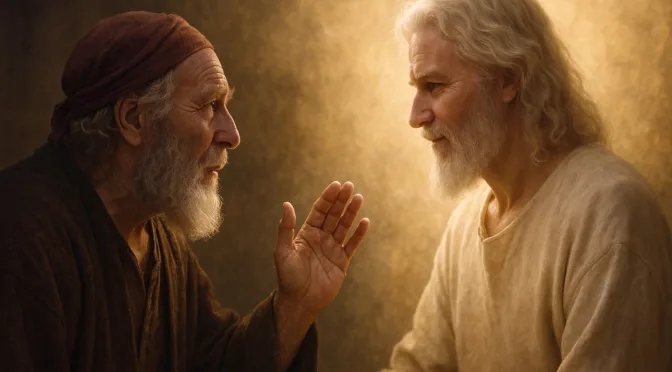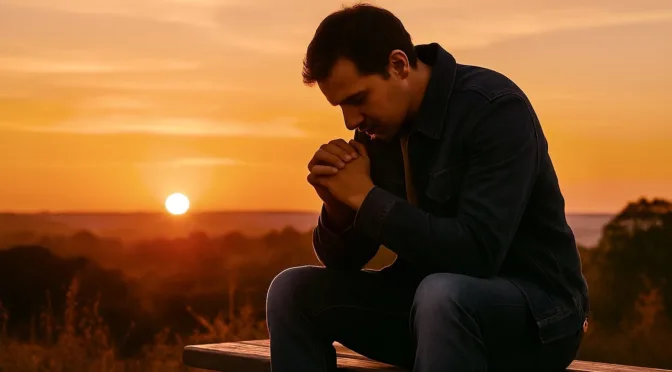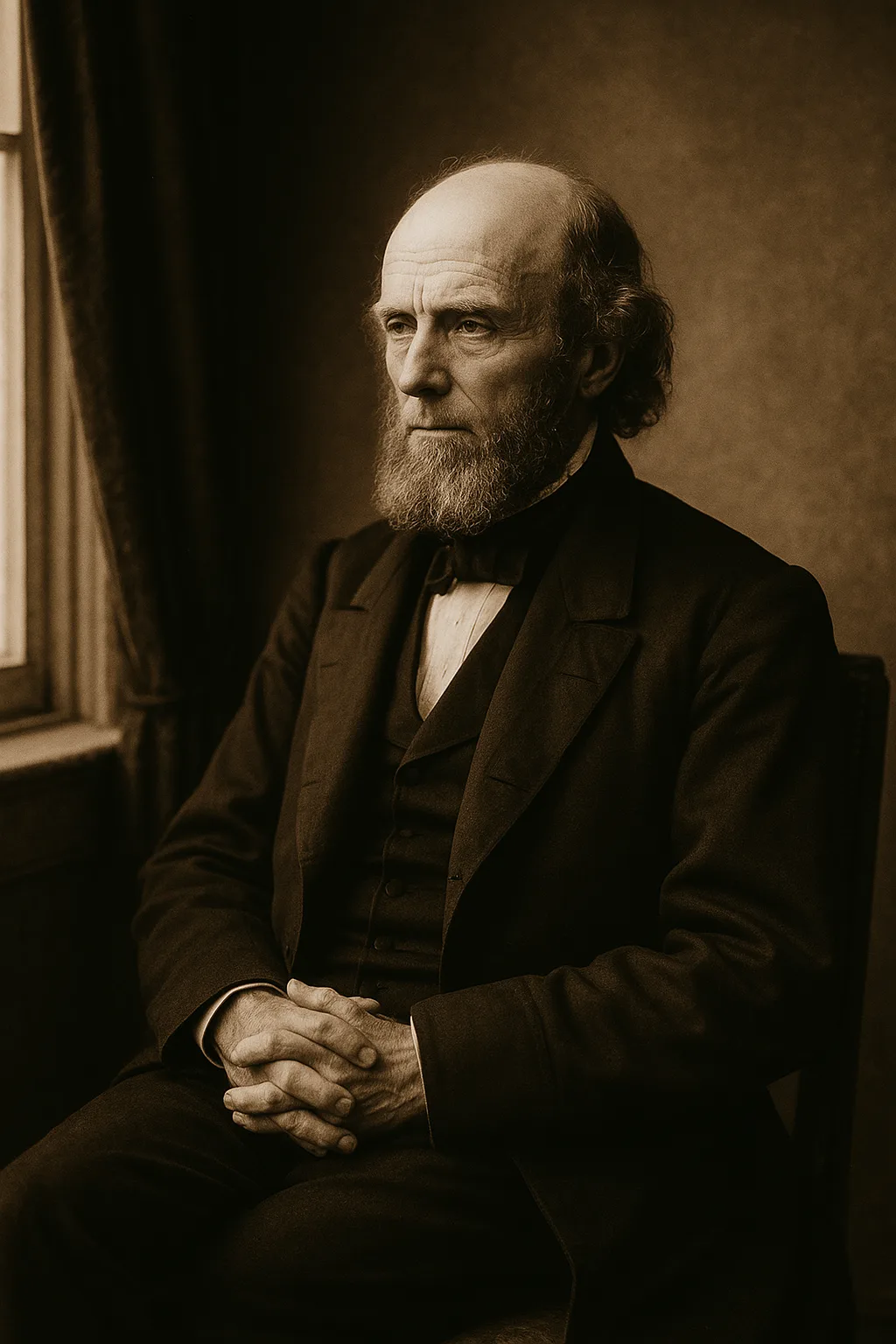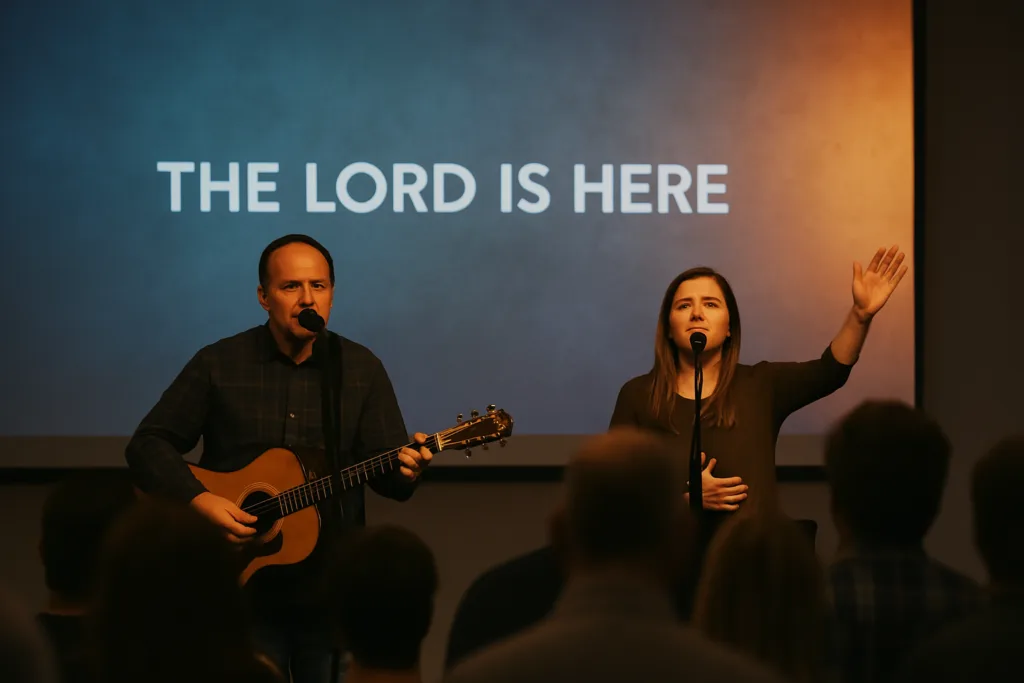There Is No Place Better
“See how great a love the Father has given us, that we would be called children of God; and in fact we are!”
—1 John 3:1 (NASB)
Come home, beloved. There is no place better than Life in the Father’s House. The ache in your heart, the weariness in your bones, the battle in your mind—all of it finds peace in the Father’s house. You were not made for the far country. You were not designed to dwell among the swine of shame and regret. You were made for communion, for sonship, for joy. And that joy is not a fleeting feeling. It is the presence of the Father Himself.
There is healing, there is grace, there is joy, but there is the presence of the Father.
When the prodigal son arose and returned, he did not find a cold reception. He found a Father who ran. “But while he was still a long way off, his father saw him and felt compassion for him, and ran and embraced him and kissed him” (Luke 15:20, NASB). That is the image of the Father—watching, waiting, running to meet you before you even finish your apology.

In the Father’s house, nothing is missing. “The Lord is my Shepherd, I will not be in need” (Psalm 23:1, NASB). You are not tolerated in His courts—you are treasured. Life in the Father’s House means the voices of condemnation cannot follow you into His presence. The accuser is silenced. “There is now no condemnation at all for those who are in Christ Jesus” (Romans 8:1, NASB).
And yet, the greatest gift of the Father’s house is not peace, or provision, or even pardon. It is presence. “Better is one day in Your courts than a thousand elsewhere” (Psalm 84:10, NASB). There is no place better, because there is no Person greater. He is the prize. His nearness is the treasure. In His presence, “is fullness of joy; in Your right hand there are pleasures forever” (Psalm 16:11, NASB).
You may feel unworthy. But your worth was never the price. The blood of Yeshua is. He gave Himself not only to rescue you from sin, but to bring you into the house again—to dwell, not visit. “For through Him we both have our access in one Spirit to the Father” (Ephesians 2:18, NASB). It is Life in the Father’s House that offers this belonging.
Don’t let shame keep you from the doorway. Don’t let failure chain you to the porch. The Father is not inside waiting for a cleaned-up version of you. He steps out to meet you, robe in hand, ring in reach. You do not need to earn your place—you need only to come. “The one who comes to Me I certainly will not cast out” (John 6:37, NASB).
In the Father’s house, every room holds redemption. Every corner echoes with songs of mercy. Every meal is a feast of restoration. And at the center of it all is the Father Himself—rejoicing over His children, dwelling among them. “I will be their God, and they will be My people, and I will dwell among them” (Revelation 21:3, NASB).
So stop running. Stop performing. Stop hiding. You were never created to live apart from Him. Come to the place where the lights never go out, where the door never closes, where love never leaves. Come to the Father’s house and experience the true essence of Life in the Father’s House.
⸻
O house of my Father, Your gates call me near,
Where mercy flows freely and love casts out fear.
Your voice I will follow, Your presence my song—
In the home of my God, forever I belong.
⸻
Prayer
Father, I hear You calling. I know the world cannot give me what You already have prepared for me. I let go of my shame, my striving, my sorrow. Wash me in Your mercy. Cover me in Your love. Let me live not as a wanderer, but as Your child—resting, rejoicing, and returning to You daily. Let my heart stay anchored in Your presence. There is no place better. In Yeshua’s holy name, Amen.
⸻
See Also
- The Call to the Father’s Embrace: A Vision of Heavenly Love
- The Lord Will Shake the Heavens and Fill His House
- the Empty House
- Cleanse the Temple, Bear the Fruit
- If David could speak to us today
La Vida en la Casa del Padre: No Hay Lugar Mejor
“¡Mirad cuán gran amor nos ha otorgado el Padre, para que seamos llamados hijos de Dios; y eso somos!”
—1 Juan 3:1 (NBLA)
Vuelve a casa, amado. No hay lugar mejor. El vacío en tu corazón, el cansancio en tus huesos, la batalla en tu mente—todo encuentra paz en la casa del Padre. No fuiste creado para el país lejano. No fuiste diseñado para habitar entre los cerdos de la vergüenza y el remordimiento. Fuiste hecho para la comunión, para la filiación, para el gozo. Y ese gozo no es una emoción pasajera. Es la presencia del Padre mismo.
Hay sanidad, hay gracia, hay gozo, pero está la presencia del Padre.
Cuando el hijo pródigo se levantó y regresó, no encontró una recepción fría. Encontró a un Padre que corrió a su encuentro. “Y cuando todavía estaba lejos, su padre lo vio y sintió compasión por él; y corrió, se echó sobre su cuello y lo besó” (Lucas 15:20, NBLA). Esa es la imagen del Padre—vigilando, esperando, corriendo a encontrarte antes de que termines tu disculpa.
En la casa del Padre, no falta nada. “El Señor es mi pastor, nada me faltará” (Salmo 23:1, NBLA). No eres tolerado en Sus atrios—eres atesorado. Las voces de condenación no pueden seguirte hasta Su presencia. El acusador es silenciado. “Por tanto, ahora no hay condenación para los que están en Cristo Jesús” (Romanos 8:1, NBLA).
Y sin embargo, el mayor regalo de la casa del Padre no es la paz, ni la provisión, ni siquiera el perdón. Es Su presencia. “Mejor es un día en Tus atrios que mil fuera de ellos” (Salmo 84:10, NBLA). No hay lugar mejor, porque no hay Persona mayor. Él es el premio. Su cercanía es el tesoro. En Su presencia, “hay plenitud de gozo; en Tu diestra, deleites para siempre” (Salmo 16:11, NBLA).
Puede que te sientas indigno. Pero tu valor nunca fue el precio. La sangre de Yeshúa lo es. Él se entregó no solo para rescatarte del pecado, sino para traerte de vuelta a la casa—para habitar, no solo visitar. “Porque por medio de Él los unos y los otros tenemos nuestra entrada al Padre en un mismo Espíritu” (Efesios 2:18, NBLA).
No dejes que la vergüenza te detenga en la puerta. No dejes que el fracaso te encadene al umbral. El Padre no está adentro esperando una versión pulida de ti. Él sale a tu encuentro, túnica en mano, anillo al alcance. No necesitas ganarte tu lugar—solo necesitas venir. “Al que viene a Mí, de ningún modo lo echaré fuera” (Juan 6:37, NBLA).
En la casa del Padre, cada habitación guarda redención. Cada rincón resuena con cánticos de misericordia. Cada comida es un banquete de restauración. Y en el centro de todo está el Padre mismo—regocijándose por Sus hijos, habitando entre ellos. “Y oí una gran voz que decía desde el trono: ‘El tabernáculo de Dios está entre los hombres, y Él habitará entre ellos; y ellos serán Su pueblo, y Dios mismo estará entre ellos’” (Apocalipsis 21:3, NBLA).
Así que deja de huir. Deja de actuar. Deja de esconderte. Nunca fuiste creado para vivir lejos de Él. Ven al lugar donde las luces nunca se apagan, donde la puerta nunca se cierra, donde el amor nunca se va. Ven a la casa del Padre.













